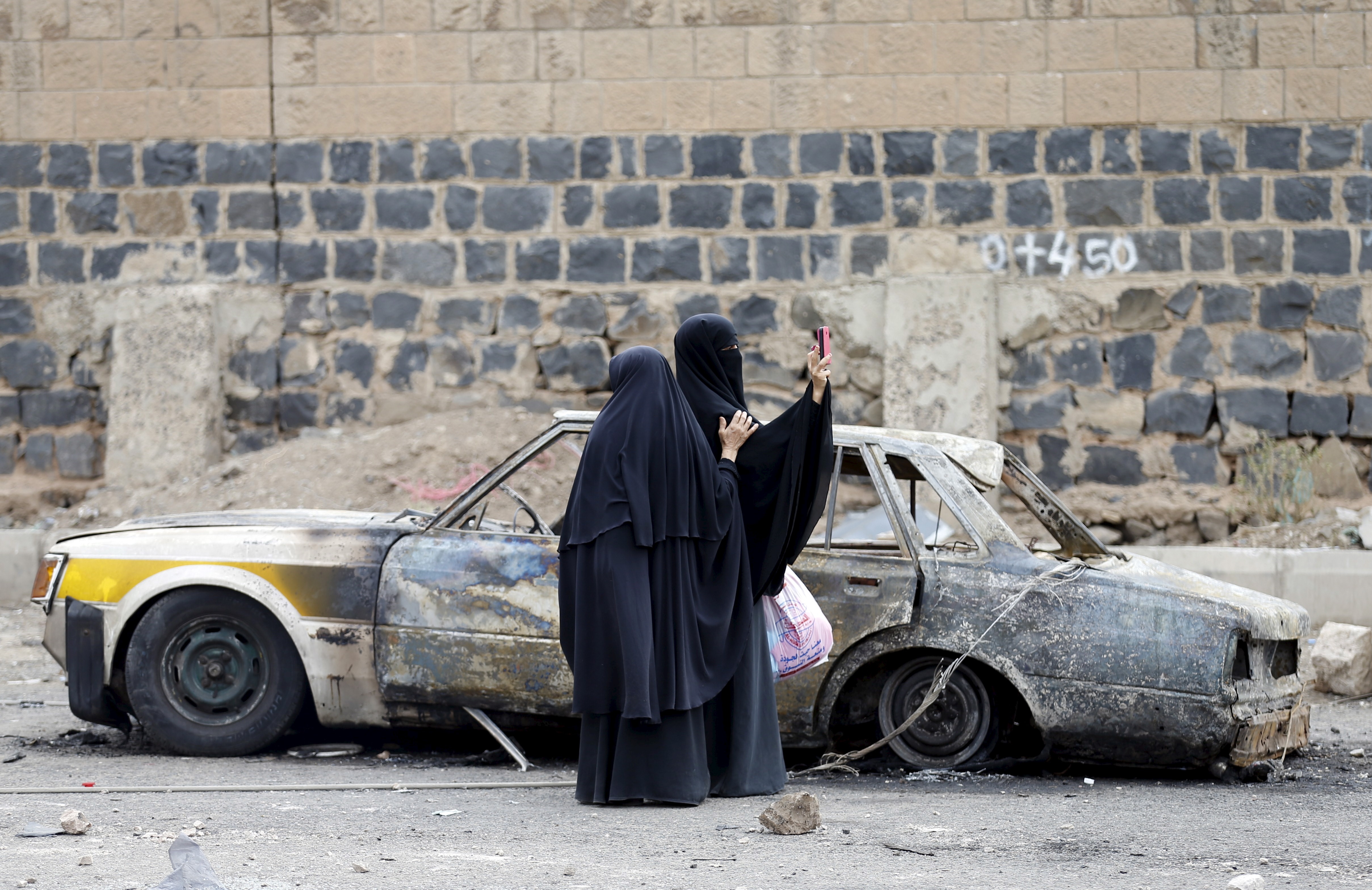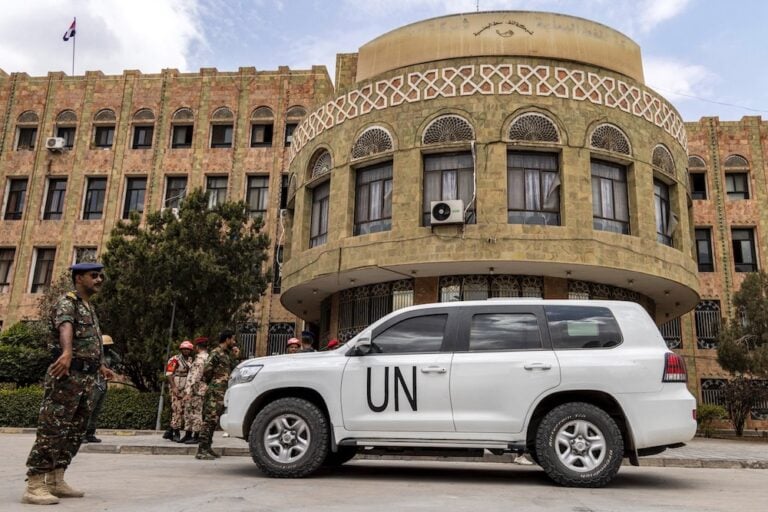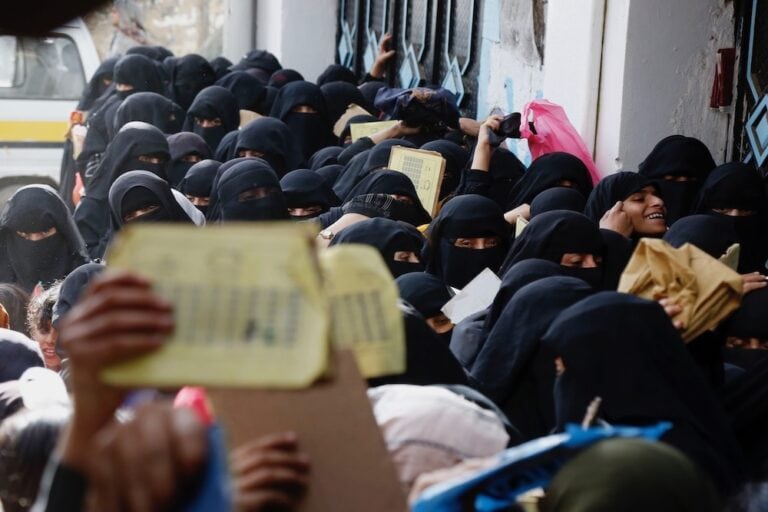As messaging app remains mysteriously blocked in war-torn Yemen, many families struggle to find news of their relatives and loved ones.
This statement was originally published on globalvoices.org on 9 October 2016.
By Amr Mostafa
Since 5 October, tens of thousands of WhatsApp users in Yemen have been dealing with an almost entire interruption of the instant messaging application. A number of users first noticed that the service was not accessible on the mobile networks of the two biggest mobile service providers in the country, Yemen Mobile and MTN. On Twitter, MTN provided a brief response to users’ inquiries, saying that the interruption is due to “technical” issues at YemenNet, the main internet service provider in the country.
@MTNYemen الوتس اب ماينفتح ولا يتصل ايش السبب بينما الفيس بوك شغال
— رضوان سالم (@AlbadaneRd) October 4, 2016
Translation: Unable to open or communicate on Whatsapp, while Facebook is working. What’s the reason?
@AlbadaneRdنود التنويه الى ان التقطع الحاصل في خدمة الواتس اب يعود نتيجه لاسباب تقنية جاري العمل على حلها من قبل مزودالخدمة في اليمن “يمن نت
— MTN Yemen (@MTNYemen) October 5, 2016
Translation: We would like to mention that the interruption in the Whatsapp service is due to technical issues, which the service provider YemenNet is working to resolve.
On Friday morning, users also faced difficulties using the Facebook app on their phones, and reported that they were unable to view their notifications, though accessing the site through a browser seemed to be working normally.
In the wake of Saturday’s airstrikes that killed at least 140 people, the blocks on basic communication platforms are even more problematic, as families seek to communicate and account for each others’ safety.
Blocking in Yemen is not a new phenomenon. For years, authorities from various political backgrounds have censored the internet for one reason or another. Websites of political opposition groups, websites containing specific religious content, and pornography have all been subject to strict censorship by the main service provider and sole provider of DSL internet connections in the country, YemenNet, which is affiliated with the Ministry of Telecommunication.
However, censorship has increased since the beginning of the conflict in which Houthi rebels are battling forces loyal to president Abdrabbuh Mansour Hadi, which are supported by a Saudi-led coalition. In March and April 2015, Houthi insurgents who control the capital Sana’a and several government buildings including the Ministry of Telecommunication, blocked access to dozens of local and regional news sites over their coverage of the conflict.
But it seems that the authorities are now turning their attention to advanced communication tools like WhatsApp and Telegram, which provide users with alternative ways to share and spread information. In fact, Telegram has seen the number of its users in Yemen increase, as it allows them to share news through the app’s channels without providing a phone number. As a result, several of the blocked sites moved to these applications and similar ones in order to reach out to users.
Until this moment no official announcement has been made concerning WhatsApp. But local experts fear it is actually an intentional shutdown of the service. All internet traffic in Yemen goes through YemenNet, and this monopoly makes it possible to impose censorship and surveillance on more than three million users in the country, most of whom use the internet (rather than traditional telecom services) to communicate.
Until there are new updates available about the real reason behind the interruption of the service, there are speculations that more censorship will be imposed on internet users in Yemen. It seems that the current policy of imposing more censorship on the Yemeni user will not disappear anytime soon, but the question remains whether such policy is enough to prevent users from accessing information, particularly with the availability of internet censorship circumvention tools like Psiphon.
Yemeni journalist and activist Walid Al-Saqaf contributed to editing this article.



